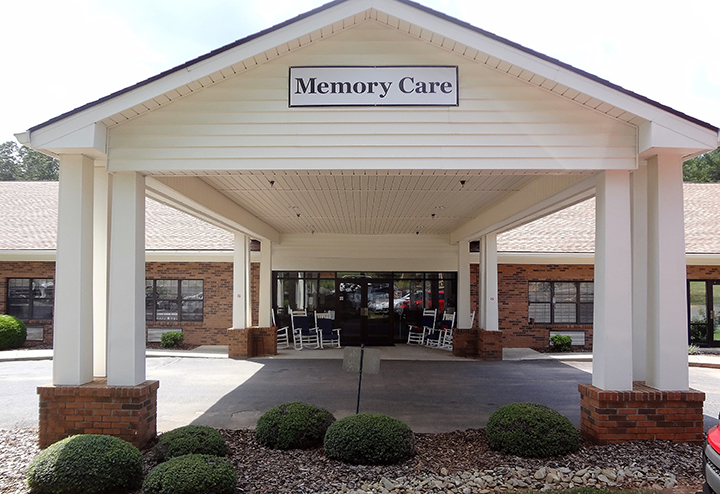Thoughtful Alzheimer's Look after Your Loved Ones
Recognizing the emotional and emotional requirements of individuals impacted by this condition is paramount in boosting their high quality of life. As we explore the numerous techniques and techniques that can change caregiving into a much more compassionate experience, it comes to be clear that the journey is as much concerning the caregiver as it is about the private with Alzheimer's.
Understanding Alzheimer's Condition
Alzheimer's disease is a dynamic neurodegenerative condition that mainly influences cognitive function, bring about memory loss, damaged reasoning, and adjustments in behavior. It is one of the most common type of mental deterioration, accounting for 60-80% of all instances. The disease commonly materializes in people aged 65 and older, although early-onset Alzheimer's can occur in more youthful individuals.
The pathophysiology of Alzheimer's involves the build-up of amyloid plaques and neurofibrillary tangles in the brain, causing neuronal degeneration and synaptic loss. These modifications interfere with interaction in between mind cells, progressively harming cognitive capacities and day-to-day performance. Early symptoms may include problem bearing in mind current events and challenges in problem-solving, which can intensify to disorientation and difficulty with language.
As the illness advances, individuals may exhibit profound memory deficits, confusion about time and location, and problem identifying loved ones. Behavioral changes, including anxiety, agitation, and withdrawal, may also occur. Understanding the professional development of Alzheimer's is critical for caretakers and doctor, as it informs effective monitoring approaches and treatments tailored to the demands of individuals influenced by this incapacitating condition.
The Importance of Compassionate Treatment
Caring treatment is essential in sustaining people with Alzheimer's disease, as it substantially enhances their high quality of life. This strategy focuses on the emotional and mental well-being of patients, cultivating an atmosphere that promotes understanding, self-respect, and regard. Individuals with Alzheimer's often experience frustration, stress and anxiety, and confusion, which can be alleviated with compassionate interactions.
Compassion in caregiving not only assists in identifying the distinct demands of each person however also enhances the caregiver-patient partnership. When caregivers approach their functions with concern, they create a risk-free area where people feel valued and comprehended, which can lower behavioral difficulties linked with the disease. This helpful setting urges better communication and interaction, promoting an extra effective response to the treatment supplied.
Furthermore, caring care expands beyond the patient; it also incorporates support for family members. Caretakers that exercise compassion are a lot more geared up to deal with the emotional problem faced by enjoyed ones, offering peace of mind and support with a difficult trip. Inevitably, the importance of compassionate care exists in its capacity to change the caregiving experience, leading to boosted end results for both people with Alzheimer's and their households.
Practical Caregiving Methods
Efficient caregiving for individuals with Alzheimer's disease requires practical methods that additional reading attend to the one-of-a-kind obstacles presented by the condition. One of the primary techniques is establishing a regular day-to-day routine, which can offer structure and knowledge, minimizing stress and anxiety for both the individual and the caregiver. Caretakers must also streamline jobs by breaking them down right into smaller, manageable actions, therefore boosting the individual's sense of success and reducing irritation.
Communication is an additional important element; caretakers must utilize clear, easy language and keep eye get in touch with to foster understanding. Using visual signs, such as pictures or tags, can even more aid understanding and navigation in the setting.
Security is extremely important. Adapting the space to get rid of threats-- such as protecting carpets or installing grab bars-- can assist prevent mishaps. In addition, caregivers must encourage freedom by permitting individuals to take part in familiar activities, which can reinforce self-worth and promote wellness.
Psychological Assistance Strategies
Psychological wellness is an important element of take care of people with Alzheimer's condition, as it directly impacts their lifestyle. Alzheimers Care Charlotte. Providing emotional assistance methods can significantly improve their day-to-day experiences and cultivate a sense of protection and belonging
One efficient strategy is energetic listening, which involves giving full interest to the person, recognizing their sensations, and reacting with compassion. This published here technique aids the person feel valued and understood, minimizing sensations of seclusion or stress. Additionally, utilizing validation therapy can be advantageous; as opposed to correcting mistaken beliefs, caretakers can verify the individual's feelings and experiences, promoting a soothing atmosphere.
Taking part in reminiscence therapy is one more effective technique, allowing people to share memories, sensations, and tales related to their past. This not only boosts cognitive function but likewise reinforces emotional links. Integrating familiar songs or art can additionally stimulate positive emotions and trigger joyous communications.
Additionally, making sure regular physical touch, such as holding hands or gentle hugs, can give convenience and peace of mind, reinforcing psychological bonds. These techniques, when consistently used, can produce a nurturing atmosphere that sustains the psychological health of people with Alzheimer's, improving their overall health.
Producing an Encouraging Setting

Firstly, think about the physical design of the space. Clutter-free locations, acquainted furniture plans, and distinct paths can minimize confusion and advertise mobility. Using soothing shades and sufficient illumination can even more improve the ambience, making it extra welcoming and much less daunting.
Secondly, uniformity is crucial. Maintaining a predictable everyday regimen assists people with Alzheimer's feeling read this much more safe. Familiar tasks, normal dish times, and arranged social interactions can substantially minimize anxiousness and disorientation.
Furthermore, sensory aspects play an essential role. Including familiar fragrances, songs, and responsive objects can evoke favorable memories and stimulate involvement. Customizing the space with treasured photos and purposeful things can likewise foster a sense of identification.
Final Thought
Thoughtful Alzheimer's treatment significantly improves the quality of life for people affected by this progressive disease. Ultimately, this technique not just provides necessary comfort and assistance but also equips people to navigate the complexities of Alzheimer's with self-respect and poise.
As we discover the different approaches and techniques that can change caregiving into an extra thoughtful experience, it becomes clear that the trip is as much about the caregiver as it is regarding the specific with Alzheimer's.

Caring treatment is important in supporting people with Alzheimer's condition, as it considerably enhances their high quality of life - Alzheimers Care Charlotte. Inevitably, the relevance of caring treatment exists in its capability to transform the caregiving experience, leading to enhanced outcomes for both people with Alzheimer's and their families
Compassionate Alzheimer's care considerably boosts the high quality of life for individuals influenced by this modern disease.